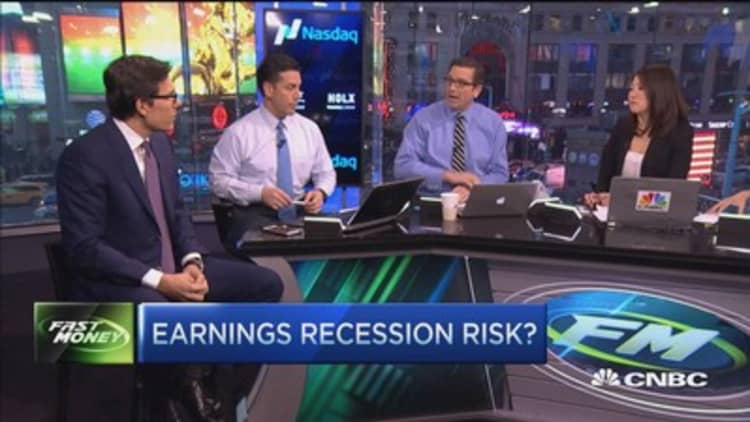
Is growth for U.S. equities in serious jeopardy thanks to the Federal Reserve's interest rate policies?
JPMorgan Chase says yes. Among Wall Street's largest banks, the firm now has the most bearish position on the S&P 500 Index. Having previously ended 2015 with an S&P price target of 2,200, JPMorgan recently cut that number to 2,000.
Citing poor earnings, the banks believes stocks will continue to stall in the new year. To date, a third of the S&P 500 has reported negative growth in both earnings and revenue.
Last week, JPMorgan's head of U.S. equity and quantitative strategies Dubravko Lakos-Bujas told CNBC's "Fast Money" that the Fed was the primary impetus behind bank's call. "We've had diverging pressures from the central bank and a Fed that's trying to tighten while the rest of the world is trying to ease," he said.
"The more that the Fed tries to tighten, it pressures the dollar upwards and it pressures commodity prices lower," he added.
The brutal start to the year, one of the worst in history, has sent Wall Street bears on a rampage and mauled major benchmarks. On Friday, the S&P was down 5.1 percent for its worst month since August 2015, and its worst January since 2009.
The uncertain global economy has made an increasing number of observers worry about the Fed making a policy mistake by hiking interest rates.
With what could be described as a hawish policy, Lakos-Bujas feels the Fed is fueling the potential for an earnings recession, and that the risk-reward for equities could deteriorate. Fearing more volatility, he's hoping for a change in Fed Chair Janet Yellen's approach. "If the Fed takes a more dovish view, I think it will provide a relief [for the U.S. economy]," he said.
As Fed policy for 2016 continues to develop, Lakos-Bujas is keeping expectations low.
"As far as this quarter is concerned, we're calling for anywhere from a 2-3 percent earnings surprise. Buyback activity is likely going to start picking up as late January to early December was a quitter period," the analyst said. "So all of these elements in the short-term might support equities." Additionally, he noted that nearly 70 percent of earnings reports have come in above estimates.
However, Lakos-Bujas was quick to mention that this data is overshadowed by concerns for the next three to six months.
As it stands, stocks have been down on the final trading day in each of the past three months, as well as down in ten of the past twelve months. JPMorgan has cited multiple hurdles to the outlook, including widening credit spreads, a deteriorating macroeconomic backdrop, and a struggling U.S. manufacturing sector as reasons for more pain to come.
In his coverage, Lakos-Bujas said that the "U.S. manufacturing sector is already in recession territory and that the non-manufacturing sector continues to decelerate."
Despite these risks, Lakos-Bujas did not call for a new crisis. A recession "is a possibility, but I wouldn't say that. I would more so say that [there's] concern over a bear market. With the S&P around 1,900 right now, that could mean we maybe see 1,700 at some point."





